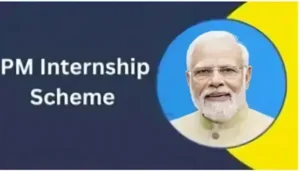Government of India is preparing to launch a third pilot phase of the PM Internship Scheme (PMIS) in August 2025, following persistent challenges in candidate retention and offer acceptance during the initial rounds.
The scheme, introduced in October 2024, was designed to provide one crore internships over five years across India’s top 500 companies.
However, data from the first two rounds reveals that only one in three candidates accepted internship offers, and an even smaller fraction actually joined.
The upcoming pilot will precede a broader rollout later in the fiscal year.
Officials from the Ministry of Corporate Affairs, which oversees the scheme, have acknowledged the need for structural improvements and are working closely with state governments to boost awareness and participation.
Pilot Rounds Reveal Low Conversion Despite High Interest
In Round 1, over 6.21 lakh applications were received from 1.81 lakh candidates, resulting in 82,077 internship offers.
Of these, 28,141 offers were accepted, but only 8,700 candidates joined their internships.
Round 2, launched in January 2025, saw 4.55 lakh applications and 71,458 offers, with 22,584 acceptances as of mid-July.
The final tally for Round 2 is expected to reach 28,000–29,000 acceptances, but actual joinings remain uncertain.
The government has cited multiple factors contributing to the high dropout rate, such as parental and peer influence, and inadequate access to affordable housing.
Additionally, a disconnect between interns’ expectations and the actual job roles or work conditions has played a significant role.
PM Internship Scheme Objectives and Financial Allocations
The PM Internship Scheme was introduced in the 2024–25 Union Budget with an initial funding of ₹2,000 crore.
However, this was later revised to ₹380 crore, and only ₹50 crore was actually spent.
For FY 2025–26, the allocation has seen a sharp increase to ₹10,800 crore. This substantial rise reflects the government’s intent to expand and strengthen the initiative.
Interns receive a monthly stipend of ₹5,000, with ₹4,500 contributed by the government and ₹500 by participating companies through their CSR funds.
A one-time grant of ₹6,000 is also provided to each intern.
Structural Reforms and Outreach Efforts
To improve uptake, the Ministry has urged state governments to conduct career counselling sessions, awareness drives, and industry-led workshops.
The initiative is focused on bridging the disconnect between academic learning and the expectations of the industry.
It places particular emphasis on Tier 2 and Tier 3 cities, where young people frequently face limited access to structured employment opportunities.
The third pilot will also introduce shorter internship durations, better location matching, and enhanced coordination between companies and candidates.
The adjustments were made in response to feedback gathered from previous rounds.
They are intended to lower dropout rates and enhance the internship experience for participants.
Note: We are also on WhatsApp, LinkedIn, and YouTube, to get the latest news updates. Subscribe to our Channels. WhatsApp– Click Here, YouTube – Click Here, and LinkedIn– Click Here.



